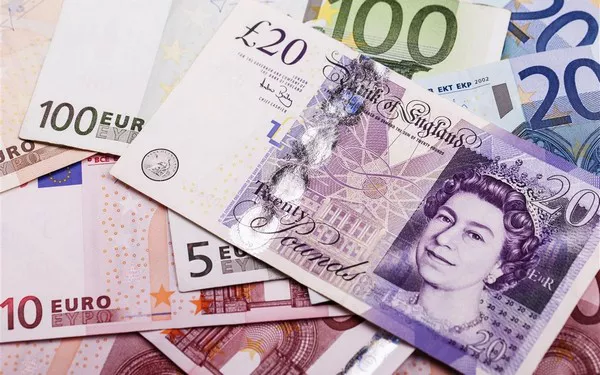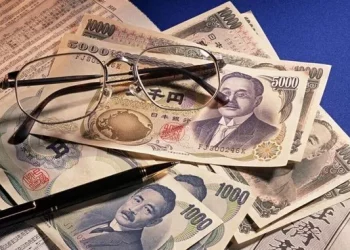The foreign exchange market, often referred to as Forex or FX, is a dynamic and complex marketplace where currencies are traded. One common question that arises among individuals and businesses engaging in international transactions is: “What is 60 euros in pounds?” To effectively address this question, we need to explore the mechanisms of currency conversion, the factors influencing exchange rates, and the implications of these conversions on trade and investment.
Understanding Currency Conversion
Currency conversion is the process of exchanging one currency for another. In this case, we are looking at converting euros (EUR) to British pounds (GBP). The rate at which one currency can be exchanged for another is known as the exchange rate. Exchange rates fluctuate due to various factors, and understanding these factors is crucial for anyone involved in international finance or trade.
The Basics of Exchange Rates
Exchange rates are determined by supply and demand in the foreign exchange market. If there is a high demand for euros compared to pounds, the value of euros will rise against pounds. Conversely, if more people are selling euros for pounds, the value of euros will fall. Exchange rates can be classified into two main categories: floating and fixed.
Floating Exchange Rates: Most currencies, including the euro and the pound, operate under a floating exchange rate system. This means that the value of the currency is determined by market forces and can change frequently throughout the day.
Fixed Exchange Rates: Some countries choose to peg their currency to another major currency, maintaining a fixed exchange rate. This system provides stability but limits the country’s ability to respond to economic changes.
Current Exchange Rate for Euros to Pounds
To convert 60 euros to pounds, we first need to know the current exchange rate. Exchange rates are published by various financial institutions and can be checked through banks, Forex platforms, or financial news websites. As of the current market, the exchange rate for EUR to GBP fluctuates. For example, the current exchange rate is 1 EUR = 0.84 GBP.
To calculate the equivalent amount in pounds, we multiply the amount in euros by the exchange rate:
60 EUR×0.84 GBP/EUR=50.10 GBP
Therefore, 60 euros would be equivalent to approximately 50.10 pounds at this exchange rate. However, it’s important to remember that exchange rates are volatile and can change from one moment to the next.
Factors Influencing Exchange Rates
Several factors influence exchange rates between currencies. Understanding these factors can help investors and businesses make informed decisions regarding currency conversion.
Economic Indicators
Economic indicators play a crucial role in determining the value of a currency. These indicators include:
Gross Domestic Product (GDP): A growing economy typically strengthens its currency as it attracts foreign investment.
Inflation Rates: Low inflation rates can increase a currency’s value, as purchasing power remains stable.
Employment Data: High employment rates can indicate a strong economy, positively impacting the currency’s value.
Interest Rates
Interest rates set by a country’s central bank can greatly influence exchange rates. When a country raises its interest rates, it often attracts foreign capital, increasing demand for its currency and leading to an appreciation in value. Conversely, lower interest rates can lead to a depreciation of the currency.
Political Stability
Political stability is vital for currency strength. Countries with stable governments and predictable policies tend to attract foreign investors, increasing demand for their currency. Conversely, political instability or uncertainty can lead to decreased investment and currency depreciation.
Market Sentiment
Market sentiment, or the overall attitude of investors toward a particular currency, can significantly impact its value. Positive news about an economy can lead to increased demand for that currency, while negative news can cause investors to pull back, leading to depreciation.
Supply and Demand
The fundamental principle of supply and demand affects exchange rates as well. If there is an oversupply of a currency in the market, its value may decline. Conversely, if demand outstrips supply, the currency’s value may rise.
The Role of Banks and Financial Institutions
Banks and financial institutions play a pivotal role in the foreign exchange market. They facilitate currency conversions and often set exchange rates based on market conditions. Here are some ways banks and institutions affect currency exchange:
Market Makers
Banks act as market makers, providing liquidity to the currency markets. They quote buy and sell prices for currencies and earn a profit through the spread—the difference between the buying and selling price.
Transaction Costs
When converting currencies, individuals and businesses often incur transaction costs, including fees and commissions charged by banks and money exchange services. These costs can impact the final amount received when converting euros to pounds.
Forex Brokers
Forex brokers provide access to the foreign exchange market for retail investors. They allow individuals to trade currencies online, often with lower transaction costs than traditional banks. Understanding the role of brokers is essential for anyone looking to engage in currency trading.
Currency Conversion for Individuals and Businesses
Understanding how to convert currencies is essential for both individuals traveling abroad and businesses engaged in international trade. Here are some key considerations for both:
Currency Conversion for Travelers
When traveling from the eurozone to the UK, travelers need to convert euros to pounds. Here are some tips for getting the best exchange rate:
Avoid Airport Currency Exchange: Currency exchange services at airports often charge higher fees and offer less favorable rates. It’s better to exchange money at a bank or a reputable exchange service.
Use Credit or Debit Cards: Using a credit or debit card that offers favorable foreign exchange rates can be a convenient way to avoid high fees associated with cash exchange.
Monitor Exchange Rates: Travelers should keep an eye on exchange rates and try to exchange money when rates are most favorable.
See Also: Current EUR Exchange Rate: 72 Euros in Pounds
Currency Conversion for Businesses
For businesses engaged in international trade, currency conversion is a crucial aspect of operations. Here are some factors to consider:
Hedging Against Currency Risk: Businesses can use financial instruments, such as futures and options, to hedge against fluctuations in currency exchange rates. This strategy can help mitigate potential losses due to unfavorable exchange rate movements.
Pricing Strategies: Companies need to develop pricing strategies that take into account exchange rate fluctuations to ensure profitability in international markets.
Foreign Currency Accounts: Businesses can maintain accounts in foreign currencies to manage their exposure to exchange rate fluctuations more effectively.
The Impact of Brexit on Euro to Pound Conversions
The United Kingdom’s exit from the European Union (commonly known as Brexit) has had significant implications for currency exchange rates between euros and pounds. Here are some key points to consider:
Market Volatility
Following the Brexit referendum in 2016, the value of the pound against the euro experienced significant volatility. Uncertainty regarding the UK’s future relationship with the EU led to fluctuations in exchange rates, impacting individuals and businesses alike.
Trade Agreements
The post-Brexit trade agreements between the UK and EU member states have the potential to affect the exchange rate. Changes in trade policies can influence market sentiment and economic indicators, ultimately impacting the value of the pound.
Economic Outlook
The economic outlook for both the UK and the Eurozone will continue to shape exchange rates. Factors such as economic growth, inflation, and interest rates in both regions will play a crucial role in determining the future value of euros in pounds.
Tools for Currency Conversion
There are several tools and resources available for individuals and businesses to help with currency conversion:
Online Currency Converters
Numerous online currency converters allow users to input an amount in one currency and receive the equivalent value in another currency based on current exchange rates. Popular options include OANDA.
Mobile Apps
Several mobile apps provide real-time exchange rates and conversion tools. These apps can be particularly useful for travelers and businesses that need to access currency information on the go.
Financial News Websites
Financial news websites, such as Bloomberg and Reuters, offer up-to-date information on exchange rates, market trends, and economic indicators. Staying informed through these sources can help individuals and businesses make informed decisions regarding currency conversion.
Conclusion
In summary, the question of “What is 60 euros in pounds?” requires more than just a simple conversion calculation. It necessitates an understanding of the underlying principles of currency conversion, the factors that influence exchange rates, and the implications of these rates for individuals and businesses engaged in international transactions.
As we’ve discussed, exchange rates are influenced by a multitude of factors, including economic indicators, interest rates, political stability, and market sentiment. The role of banks and financial institutions in facilitating currency conversions cannot be understated, and it is essential for both travelers and businesses to be aware of the costs and strategies associated with currency exchange.
In an ever-changing economic landscape, staying informed and utilizing the available tools for currency conversion can empower individuals and businesses to navigate the complexities of the foreign exchange market effectively. Ultimately, understanding the intricacies of currency conversion will enable smarter financial decisions, whether one is traveling, investing, or engaging in international trade.
Related Topics:


























